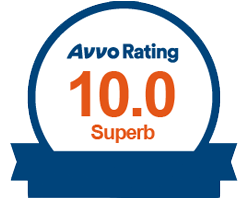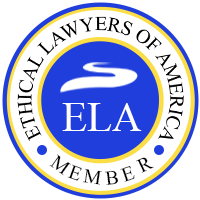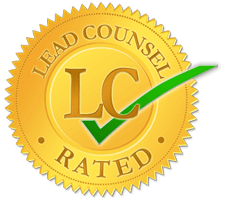DEFENDING YOUR RIGHTS
In California, employees are protected from employer retaliation under state and federal law.
Top Los Angeles Employer Retaliation Lawyer
Many employees in Los Angeles face retaliation from their employers after speaking up about illegal activities, discrimination, or harassment in the workplace.
Employer retaliation takes various forms, such as wrongful termination, demotion, pay cuts, and other adverse employment actions. Unfortunately, many workers who experience retaliation may feel powerless and uncertain about their next steps.
Fortunately, there are legal remedies available for employees who have been subjected to retaliation. In California, employees are protected from employer retaliation under state and federal law.
These laws prohibit employers from taking adverse employment actions against employees who report illegal activities in the workplace or participate in an investigation or legal proceeding related to such activities.
This is where the services of a Los Angeles employer retaliation attorney can be invaluable as they can uphold your rights while helping you present the strongest case possible against your employer.
What qualifies as employer retaliation in California?
Employer retaliation in California occurs when an employer takes an adverse action against an employee who has engaged in legally protected activity.
Retaliation can take many forms, such as demotion, suspension, termination, or other adverse actions that negatively impact the employee’s job status or working conditions. California law provides broad protections against employer retaliation for a variety of activities, including:
- Filing a complaint or grievance with a government agency or supervisor about workplace harassment, discrimination, or other illegal activities.
- Participating in an investigation or legal proceeding related to workplace harassment, discrimination, or other illegal activities.
- Requesting reasonable accommodations for a disability or religious beliefs.
- Reporting violations of workplace health and safety regulations.
- Engaging in political activity outside of work.
- Taking protected leave under the Family and Medical Leave Act (FMLA) or California Family Rights Act (CFRA).
An employer cannot retaliate against an employee for engaging in any of these protected activities. If an employee believes that they have been retaliated against, they may be able to file a claim against their employer for damages.
Employees interested in pursuing legal action should consult Los Angeles employer retaliation lawyers to secure the best possible outcomes in their cases.
What are employees’ rights?
Employees have various rights, which can vary depending on their jurisdiction and the type of employment. In general, some of the key rights that employees have include:
- Right to a safe and healthy workplace: Employees have the right to a work environment that is free from hazards that can cause injury or illness. Employers must comply with health and safety regulations and provide appropriate training and protective equipment.
- Right to be free from discrimination: Employees are protected from discrimination based on their race, color, religion, national origin, sex, age, disability, or other protected characteristics. This means that employers cannot make employment decisions based on these factors.
- Right to fair pay: Employees are entitled to be paid at least the minimum wage and to receive overtime pay when working more than a certain number of hours in a workweek. They also have the right to receive their pay on time and to be paid for all the hours they work.
- Right to reasonable accommodations: Employees with disabilities or religious beliefs may be entitled to reasonable accommodations that enable them to perform their job duties. This could include modifications to the workplace, work schedule, or job duties.
- Right to privacy: Employees have the right to privacy in certain areas, such as their personal belongings, electronic communications, and medical records. Employers must follow certain rules and obtain consent before conducting searches or accessing this information.
- Right to form or join a union: Employees have the right to form or join a union, engage in collective bargaining, and take part in strikes or other concerted activities.
These are just a few examples of the rights that employees have. The specific rights and protections available to employees can vary depending on the laws and regulations of their jurisdiction and the terms of their employment contracts.
In addition to the examples mentioned, employees may also have rights related to their pay and benefits, such as minimum wage requirements, overtime pay, and health insurance coverage. Other protections may relate to workplace safety, including requirements for training, protective equipment, and hazard communication.
WORKPLACE RETALIATION EVALUATOR QUIZ
Take this short 90 second quiz to see if you might have a valid workplace retaliation quiz.
What Steps Should Be Taken After Employer Retaliation?
If an employee believes they have experienced employer retaliation, they should take the following steps:
- Document the retaliation: Keep a record of any incidents that could be considered retaliation, including the date, time, and nature of the incident, as well as the names of any witnesses.
- Report the retaliation: You should report the retaliation to your supervisor, an HR representative, or another appropriate person within the company. If the retaliation is related to harassment, discrimination, or other illegal activity, the employee may also want to report it to a government agency, such as the Equal Employment Opportunity Commission (
- Consult with an attorney: If the retaliation has resulted in significant harm, such as termination or demotion, you may want to consult with an attorney who specializes in employment law. An attorney can help the employee understand their legal rights and options and provide guidance on how to proceed.
- Cooperate with any investigations: If you have filed a complaint or grievance, you should cooperate with any investigations that are conducted by your employer or a government agency. This includes providing any relevant documents or testimony and responding to any questions truthfully.
- Take appropriate legal action: If the retaliation is found to be illegal, you may be entitled to remedies such as reinstatement, back pay, compensatory damages, and punitive damages. An attorney can help the employee determine the best course of action to take based on the specifics of their case.
Employees should take prompt action if they experience employer retaliation, as there are often time limits for filing complaints or pursuing legal actions. It is crucial for employees to act swiftly and assert their rights, as delays could jeopardize their ability to seek redress for any harm suffered.
By taking prompt action, employees can protect their legal rights and increase the likelihood of a successful outcome. This can include seeking advice from an attorney, filing a complaint with a government agency, or pursuing other legal remedies.
Prompt action can also serve as a deterrent to employers, as it sends a message that retaliation will not be tolerated and that employees will assert their rights in the face of adverse actions.
How do you prove employer retaliation?
Proving employer retaliation can be difficult, however, there are steps you can take to build a case. First, make sure to document the protected activity.
Keep a record of any incidents that could be considered protected activity, such as filing a complaint about workplace harassment or requesting reasonable accommodation for a disability. Be sure to include the date, time, and nature of the incident, as well as the names of any witnesses.
Next, document the adverse employment action. Keep a record of any incidents that could be considered adverse employment action, such as termination, demotion, reduction in pay or hours, or other negative treatment. Again, be sure to include the date, time, and nature of the incident, as well as the names of any witnesses.
To establish a causal connection between the protected activity and the adverse employment action, you must be able to demonstrate that the adverse action was taken because of the protected activity. This can be done by showing that the adverse action occurred shortly after the protected activity, and that there was no other reason for the adverse action.
Identifying witnesses can also be helpful in proving employer retaliation. If there are witnesses who can corroborate your version of events, it can be helpful to obtain their statements and contact information. Witness testimony can be particularly persuasive in demonstrating a causal connection between the protected activity and the adverse employment action.
In addition to documentation and witness testimony, other evidence that can help prove employer retaliation may include emails, text messages, or other communications that demonstrate an intent to retaliate. It may also be helpful to show that other employees who engaged in similar protected activity were also subjected to adverse employment action.
How do you file a claim?
To file a claim for employer retaliation, the specific steps may vary depending on the jurisdiction and the specific agency or court involved. However, here is a general overview of the steps you may need to take to file a claim:
- Identify the appropriate agency: The first step in filing a claim for employer retaliation is to identify the appropriate agency or court that handles these types of claims. This may include the Equal Employment Opportunity Commission (EEOC) or the Department of Labor (DOL).
- Gather evidence: Before filing a claim, gather any evidence that can help support your case. This may include documentation of the protected activity, documentation of the adverse employment action, witness statements, and any other relevant evidence.
- Consult with an attorney: Before filing a claim, you may want to consult with an attorney who specializes in employment law. An attorney can help you understand your legal rights, assess the strength of your case, and guide you through the process of filing a claim.
- File the claim: Once you have identified the appropriate agency or court and gathered your evidence, you can file the claim. This may involve filling out a form or providing a written complaint that outlines the details of the retaliation.
- Cooperate with the investigation: After filing the claim, you will need to cooperate with any investigations that are conducted by the agency or court. This may involve providing additional evidence or answering questions.
- Attend mediation or settlement conferences: In some cases, the agency or court may require mediation or settlement conferences to try to resolve the case without going to trial.
- Attend a hearing or trial: If the case is not resolved through mediation or settlement, you may need to attend a hearing or trial to present your evidence and arguments to a judge or jury.
It is worth noting that the process of filing a claim for employer retaliation can be complex and can vary depending on the specific jurisdiction and agency or court involved. To navigate this process effectively and safeguard your legal rights, it can be beneficial to seek advice from an attorney who specializes in employment law.
A Los Angeles Employer Retaliation attorney can provide valuable insights on the relevant legal requirements and procedures and offer guidance on the steps you need to take to pursue your claim effectively. They can help you to understand the intricacies of the legal system and any deadlines or other requirements that must be met.
What are some example cases?
Examples of employer retaliation include:
- Terminating an employee in response to the employee making a complaint about workplace harassment or discrimination.
- Demoting or transferring an employee to a less desirable position after the employee engages in legally protected activity.
- Reducing an employee’s hours or pay after the employee requests a reasonable accommodation for a disability or religious belief.
- Harassing or threatening an employee after the employee files a complaint or grievance with a government agency or supervisor.
Employees who experience employer retaliation may be entitled to remedies such as reinstatement, back pay, compensatory damages, and punitive damages.
Is it worth suing?
Deciding whether it’s worth suing for employer retaliation requires careful consideration of various factors, one of the most important being the strength of the case. If the evidence is strong and there is a likelihood of success at trial, it may be worth pursuing legal action.
The potential damages or remedies available is another factor to consider. If the damages or remedies available are significant and can compensate for the harm caused by the employer’s retaliation, it may be worth pursuing legal action.
Compensation for lost wages, benefits, or other damages, as well as to prevent future retaliation, can be extremely valuable if you have suffered economic damages as a result of retaliation from your employer.
What are employer retaliation cases worth?
The value of an employer retaliation case can vary widely depending on a variety of facts, including the severity of the retaliation, the duration of the retaliation, the financial losses suffered by the employee as a result of the retaliation, and the emotional distress caused by the retaliation.
In some cases, an employee may be able to recover lost wages and benefits as a result of the retaliation, including back pay and future earnings. In addition, an employee may be able to recover damages for emotional distress, including anxiety, depression, and other mental health issues caused by the actions of their employer.
It’s important to consult with an experienced employment law attorney to assess the strengths of the case, understand the potential damages or remedies available, and make an informed decision about whether to pursue legal action.
The attorney can provide a realistic assessment of the value of the case based on the specific facts and circumstances and can help the employee pursue the best possible outcome.
How can a Los Angeles employer retaliation attorney help me?
An employer retaliation lawyer can be a valuable asset if you believe you have been the victim of retaliation at work. An experienced lawyer can help you understand your legal rights and options and can help you navigate the complex legal process of pursuing a retaliation claim.
One of the primary ways an employer retaliation lawyer can help is by evaluating the strength of your case. The lawyer can review the evidence and determine whether there is a strong likelihood of success at trial. They can also help you understand the legal standards that apply to retaliation claims and whether you meet the necessary requirements to file a claim.
If you believe that you have been the victim of employer retaliation, seeking the help of a lawyer referral service can be a smart decision. A lawyer referral service can connect you with experienced and reputable employer retaliation lawyers who can evaluate your case and provide you with sound legal advice.
LawLinq is a simple and effective way to find the best Los Angeles employer retaliation lawyer. Our lawyer referral service can connect you with lawyers who have a proven track record of success in employer retaliation cases and who will work tirelessly to protect your legal rights and seek both compensation and justice for your case.
LawLinq can offer you peace of mind knowing that the attorneys we refer to you have been screened for their experience, qualifications, and ethics. This ensures that you will be working with a reputable and trustworthy attorney who is committed to fighting for your rights.
LawLinq can connect you with highly qualified Los Angeles employer retaliation attorneys at no cost or obligation to you. If you have any questions about your situation, please let us know by contacting us at (855) 997-2558 or by filling out a form on our site.
GET EMPLOYER RETALIATION HELP NOW!
LawLinq is a California State Bar Certificated Lawyer Referral Service. We’re experts at finding the best EMPLOYER RETALIATION attorney to meet your needs and our service is FREE to consumers.
I didn't know where to find legal help...

Answered the phone at 11pm...

"I was stressed out surfing the Internet for legal help late one night and came across LawLinq…pleasantly surprised when someone answered the phone at 11PM to help me find a lawyer."
- Alex C.
Brian was a lifesaver for my case...

"Thanks to LawLinq, I met my attorney Brian who was a lifesaver with my case. He helped me navigate lots of complex processes and got the insurance company to compensate me."
- Mina M.
Recent Settlements Secured by
LawLinq Lawyer Members
-
$18.7Million
Premises Liability
The client sustained serious injuries while employed at a farm, operating the Defendant's tractor and harvesting equipment. LawLinq lawyers secured a verdict in the client’s favor, with an award of $18.7 million.
-
$10.0Million
Pedestrian Accident
The client sustained severe injuries when struck by a fast-moving vehicle. Our member lawyers secured a significant financial settlement and access to top-tier medical care and treatment.
-
$5.3Million
Class Action Verdict
A jury in Los Angeles County, California, awarded a verdict to participating clients in a class action lawsuit for Bad Faith and Breach of Contract against a prominent insurance company.
Lawyer Awards & Recognition
Our services are 100% FREE to you. Share your case details with LawLinq and we will match you with a licensed lawyer in your area who will provide you with an initial consultation at no charge. We are committed to helping you find the right lawyer for your case.
Lawlinq Lawyers Featured On...
Frequently Asked Questions
Please review our list of frequently asked questions. If you don't see the answer to your question, give us a call to discuss your legal matter.
Yes! LawLinq will refer you to a qualified, pre-screened lawyer at absolutely no charge to you.
LawLinq member lawyers will provide you with a FREE half-hour initial consultation. Please inquire with the lawyer referral regarding his or her charges for attorneys fees and costs related to your specific legal needs.
LawLinq has a powerful network of reputable, qualified and experienced lawyers in most geographic locations throughout Los Angeles County who specialize in a wide range of practice areas.
When you talk to a LawLinq team member, we’ll generally ask for the following information: first name, last name, contact information, general details about your case, charges and some basic information that will help us connect you with a lawyer who is right for your particular situation.
We typically can gather all the information we need within 5 minutes and then we’ll make every effort to connect you with a qualified lawyer right away.
Yes. We only share the information you provide us with the lawyer(s) to whom we refer you so they can follow up with you accordingly.
Get in Touch With the Best Lawyer for Your Case
LawLinq is a California State Bar Certified Lawyer Referral Service. We're experts at finding the best attorney to meet your needs, and our service is FREE to consumers.
CALL NOW: (855) 997-2558Case Types Include
Call now to connect with an attorney:
(855) 997-2558





























"I sustained injuries from a car accident that wasn’t my fault and didn’t know where to find legal help. A friend told me about LawLinq and they referred me to an excellent lawyer!"
- Jonathan G.